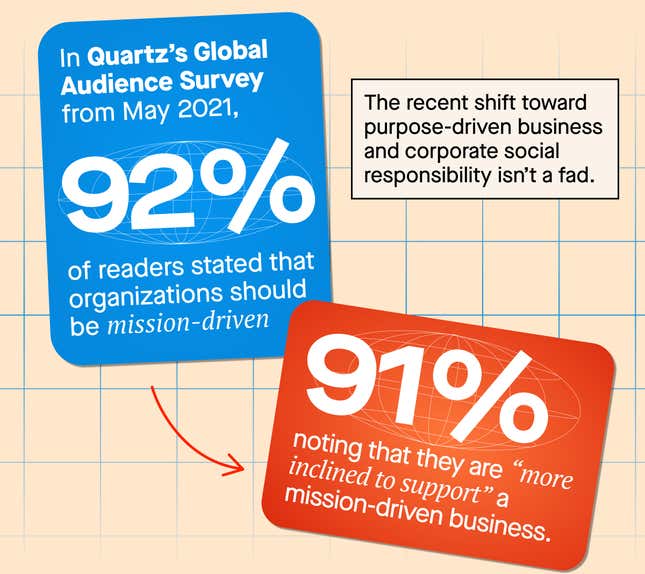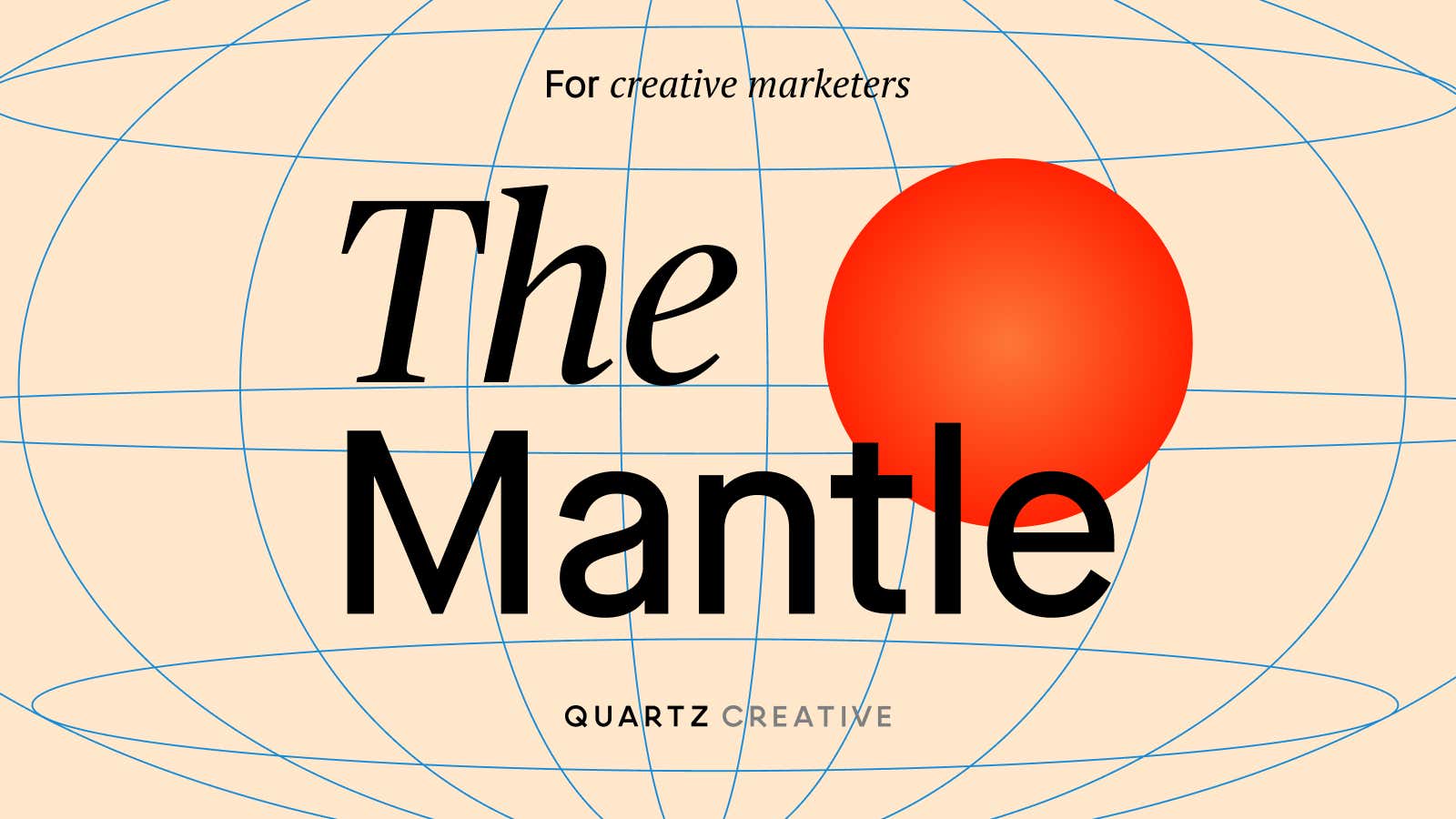Welcome back to The Mantle, your monthly download on all the marketing trends and industry insights brewing below the surface, courtesy of Quartz’s in-house studio, Quartz Creative.
As society tries to solve the problems with capitalism, corporations are being held responsible for both their roles in the system and how to fix it. Follow along as we explore the ways consumers and employees are taking brands to task and what it all means for marketers.

When Quartz launched in 2012, we wanted to build a new kind of business news organization—one that challenged the status quo and guided next generation executives through a rapidly changing business landscape.
Nearly nine years later, the need for progressive business journalism has never been more critical. In 2020, Quartz doubled-down our mission to Make Business Better, zeroing in on the belief that in order to be successful, companies must be more sustainable, innovative, and inclusive.
Consumers’ expectations for better business practices have heightened, and it’s up to all of us to provide the tools, resources, and support necessary to make change possible. To steal a line from our Fixing Capitalism Obsession, capitalism is just a collection of human decisions. We can change it if we want to.
— Natalie Diamond, CRO, Quartz
Data Mining
The recent shift toward purpose-driven business and corporate social responsibility isn’t a fad. In Quartz’s audience survey from May 2021, a whopping 92% of readers stated that organizations should be mission-driven, with 91% noting that they are “more inclined to support” a mission-driven business.
This isn’t a strictly consumer perspective; 84% of respondents wish their company would provide them with the resources necessary to affect change, and more than half (52.7%) of leaders feel empowered in their roles to make change possible.

Brands need to move past the modus operandi: 37% of readers surveyed believe that organizations should prioritize communities over shareholders, customers, and even employees.
Here are the issues most important to Quartz readers:
🌲 58% Climate action/climate justice
🤝 49% Inclusion/anti-racism
🏢 41% Equitable cities/infrastructure
💰 24% Stakeholder governance/stakeholder capitalism
Trendgame
Do you consume with a conscience? Brands are betting on it.
Societal marketing (often used interchangeably with CSR marketing or social marketing) is defined as “marketing that takes into account society’s long-term welfare,” and is now a staple strategy for countless brands.
According to Annie Granatstein, Edelman’s creative newsroom director, “CSR [corporate social responsibility] is becoming more central to brands’ entire way of marketing and communicating.” In fact, a 2019 report from Aflac found that 70% of consumers believe corporations have a responsibility to improve the world for everyone.
The paradigm shift has formed in parallel with the rise of the internet and social media, which makes it uniquely possible for stories about corporate malpractice to go viral. Consumers want corporations to hold the same values as they do, with sustainability, support for local communities, and diversity initiatives becoming common touchpoints.
Here’s the Quartz take:
- Take a stand. Consumers prefer brands with firm stances on the issues they support. Even if some potential customers are alienated, the net benefit outweighs the detriment.
- Don’t just talk—listen. Sharing your brand’s accomplishments is the point of societal marketing, but it will come across as hollow if you don’t make room for the voices of the groups or causes you’re trying to help.
- Get your audience involved. Engaging with your followers on social media is a great way to demonstrate authenticity in a personalized way, while also extending your brand’s reach.
Content à la Carte
Last summer, the murder of George Floyd at the hands of Minneapolis Police reached every corner of society and shed light on both the blatant and hidden ways that powerful institutions, including capitalism, uphold white supremacy and disenfranchisement.
These conversations remain a priority for consumers and employees. Quartz dove in with a field guide covering business’ role(s) in the societal push for anti-racism, and another on the burgeoning generation of employee activists.

To learn more about business leaders’ efforts to create a more equitable world, watch Make Business Better: In Conversation with Zach Seward.
New from the Stu’
Marketers recognize the endless opportunities to appeal to zoomers, who have undoubtedly shaped the cultural shift toward CSR. But there’s a catch: This generation can smell inauthenticity from a mile away, and they aren’t afraid to call out corporation’s empty overtures.
Quartz Creative’s work with Deloitte, surfacing insights from their annual millennial survey, separates the stats from the stereotypes for a deeper look at what truly matters to young people. (You too, millennials.)
The studio also works with companies putting these visions for a brighter future into practice. In 2019, we traveled to Murcia, Spain, to get up close and personal with PepsiCo subsidiary Alvalle’s sustainable farming efforts, and learned how Temasek is using tech to tackle the future food crisis. Last year, with the help of WE Communications, we taught leaders the impact of a resilient purpose.
See you next month
Thanks for reading The Mantle. Let us know how your favorite brands (including Quartz) are meeting—or missing—the moment at quartzcreative@qz.com, and check out our portfolio to view some of our latest work. See you next month.
